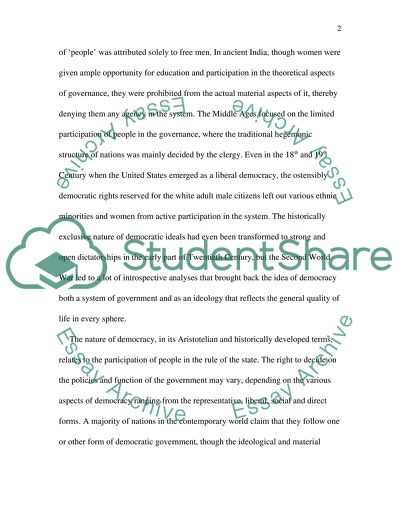Cite this document
(“Democratic states have historically been fouded upon the exclusion of Essay”, n.d.)
Democratic states have historically been fouded upon the exclusion of Essay. Retrieved from https://studentshare.org/miscellaneous/1540126-democratic-states-have-historically-been-fouded-upon-the-exclusion-of-women-what-if-anything-does-this-tell-us-about-the-nature-of-democracy-as-a-system-of-g
Democratic states have historically been fouded upon the exclusion of Essay. Retrieved from https://studentshare.org/miscellaneous/1540126-democratic-states-have-historically-been-fouded-upon-the-exclusion-of-women-what-if-anything-does-this-tell-us-about-the-nature-of-democracy-as-a-system-of-g
(Democratic States Have Historically Been Fouded Upon the Exclusion of Essay)
Democratic States Have Historically Been Fouded Upon the Exclusion of Essay. https://studentshare.org/miscellaneous/1540126-democratic-states-have-historically-been-fouded-upon-the-exclusion-of-women-what-if-anything-does-this-tell-us-about-the-nature-of-democracy-as-a-system-of-g.
Democratic States Have Historically Been Fouded Upon the Exclusion of Essay. https://studentshare.org/miscellaneous/1540126-democratic-states-have-historically-been-fouded-upon-the-exclusion-of-women-what-if-anything-does-this-tell-us-about-the-nature-of-democracy-as-a-system-of-g.
“Democratic States Have Historically Been Fouded Upon the Exclusion of Essay”, n.d. https://studentshare.org/miscellaneous/1540126-democratic-states-have-historically-been-fouded-upon-the-exclusion-of-women-what-if-anything-does-this-tell-us-about-the-nature-of-democracy-as-a-system-of-g.


